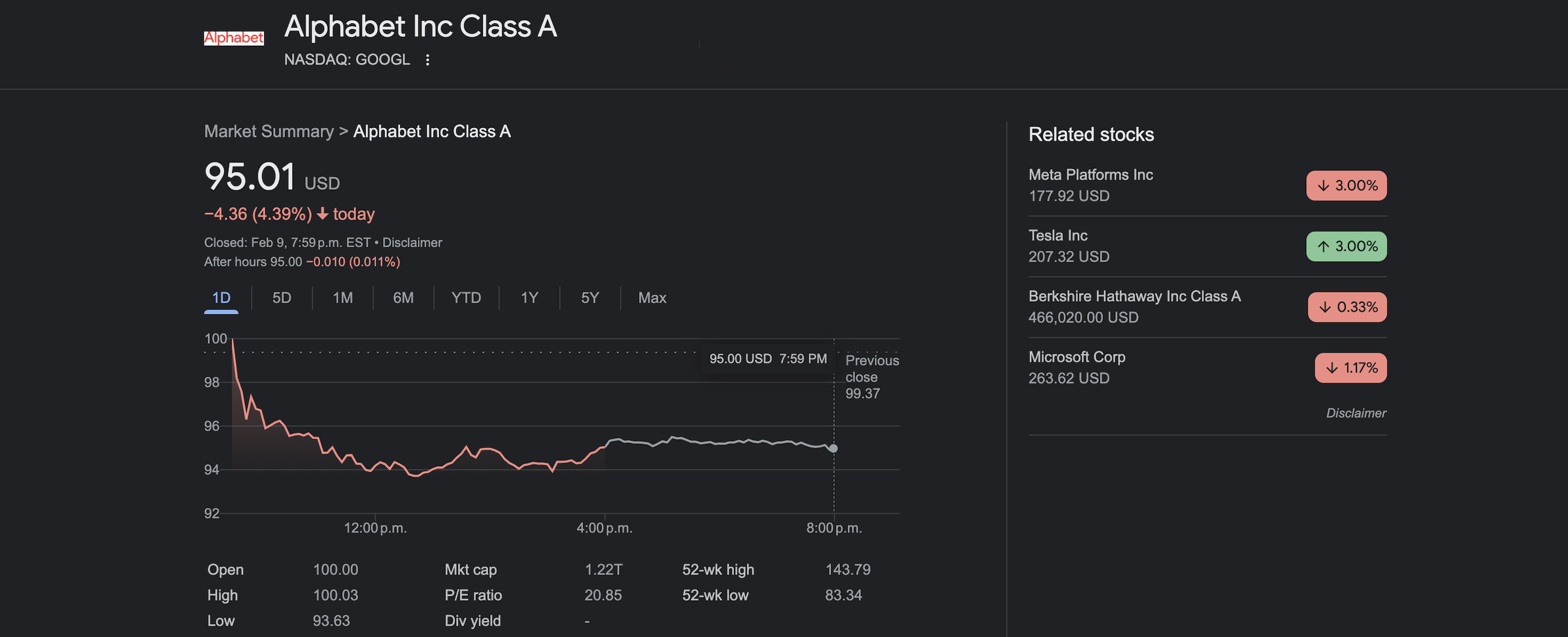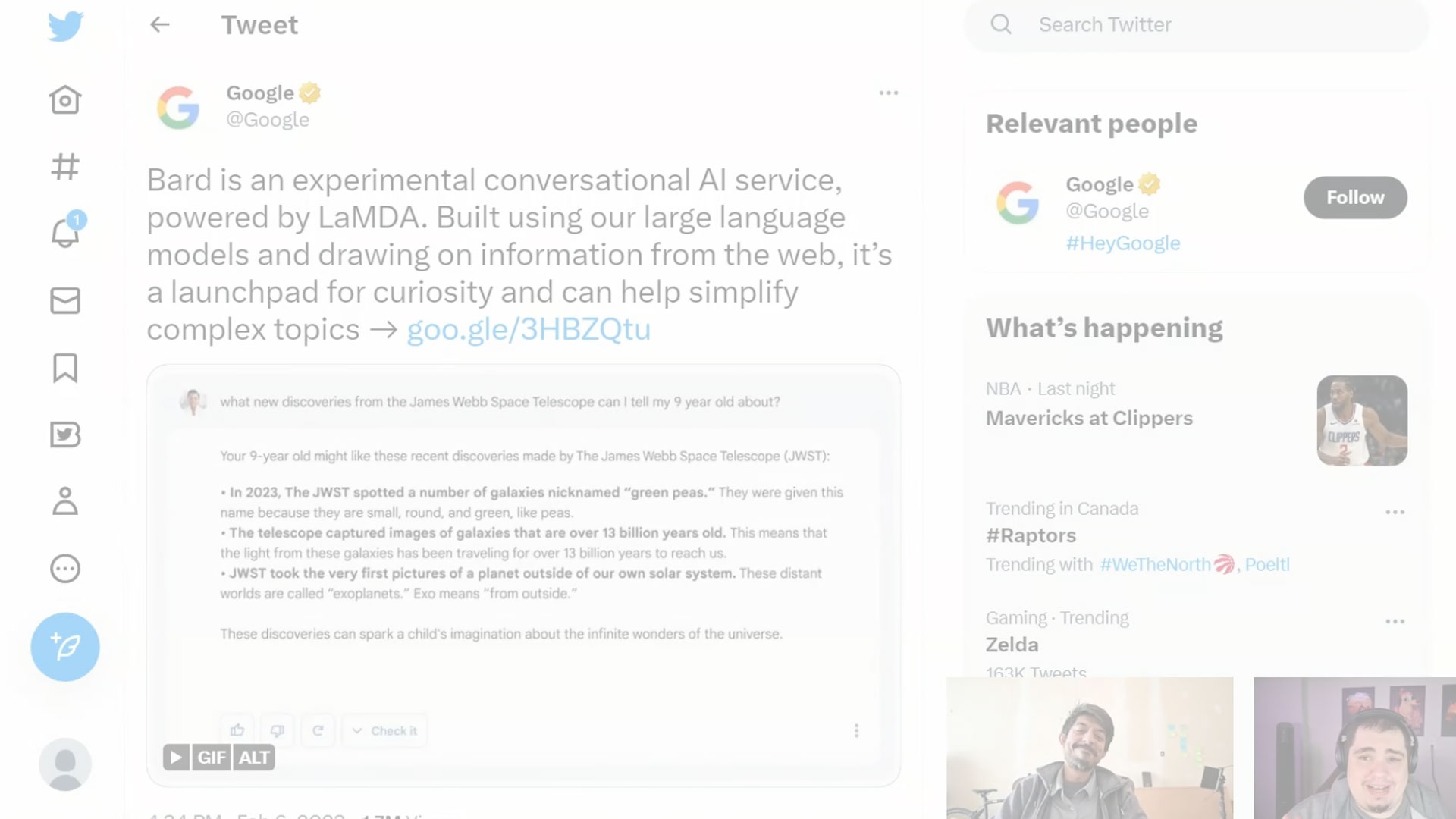AI Error Costs Google $100 Billion and Pushes Microsoft to the Top of AI Race
It’s been a very exciting week for AI, specifically generative AI. The week kicked off with Microsoft unveiling the future of its Bing search engine and Edge browser, a future steeped in assistive AI. You’ll soon find answers to your questions by having a quick chat with Bing, soon powered by the now household name ChatGPT.
These advances have left Google somewhat in the cold, a rare occurrence for a company typically seen as at the forefront of innovation. There had been nothing but mere rumours around a potential launch of their much anticipated LaMDA project, an AI that is anticipated to be a game changer. LaMDA boasts multiple specialized bits of intelligence for solving specific tasks as opposed to a generalist AI like ChatGPT.
Feeling a little left out by the Microsoft announcement, Google seemingly kicked into high gear a shot back by announcing Bard, the future AI buddy for the Google search and their Chrome browser. Unamusingly to some investors, the initial social media post was not well received.
Watch the full discussion:
The post showed a GIF where a user posed a relatively innocuous question to Bard “What new discoveries from the James Webb Space Telescope can I tell my 9 year old about?”. The system replied with a few correct bullet points and one very incorrect answer that the telescope was the first to picture distant exoplanets, a feat that, according to NASA, was accomplished in 2004 by a ground-based telescope in Chile.
Bard is an experimental conversational AI service, powered by LaMDA. Built using our large language models and drawing on information from the web, it’s a launchpad for curiosity and can help simplify complex topics → https://t.co/fSp531xKy3 pic.twitter.com/JecHXVmt8l
— Google (@Google) February 6, 2023
For the trained eye, this was typical generative ai misunderstanding. In our estimation, many articles spoke of “the first pictures of exoplanets captured by James Webb,” a minor nuance to a human being but a minefield in the training of an AI. This nuance, lost on many investors, did little to quell investor fear. Google stock dropped 100 billion dollars in value in mere hours after the error was noticed.
Misinformation at scale; bullshit as a service.
— Grady Booch (@Grady_Booch) February 8, 2023
(The European Very Large Telescope- not the JWST - took the first optical photograph of an exoplanet in 2004.) https://t.co/J4mJMPORQe
It’s an important lesson on a few fronts. Firstly, check everything in your social posts and presentations carefully, especially when AI is involved *somewhere* in your process. Secondly, it shows a profound need for more understanding of the technology. It demonstrates the human propensity to fear that which they do not understand. These knowledge gaps will be prominent.
As business works to commercialize AI, there will be mistakes and problems. But not every error and every problem are earth-shattering; many are opportunities for refinement and fine-tuning. It’s essential to have realistic expectations of the technology and your projects and a clear and concise plan to create better results in the future. It’s also equally important to have clean, accurate training data with a method for scrubbing erroneous information.
These new technologies may be a magic wand. Still, much work goes into planning, creating, and executing an excellent AI strategy. Walk before you run, and always check your social posts twice!
Generative AI is transformative. To leverage it, we need to be strategic. To experience its potential, give https://bluecap.ai a try to augment your meeting productivity.
Have questions or want to partner with us for your next AI project? Contact us.


